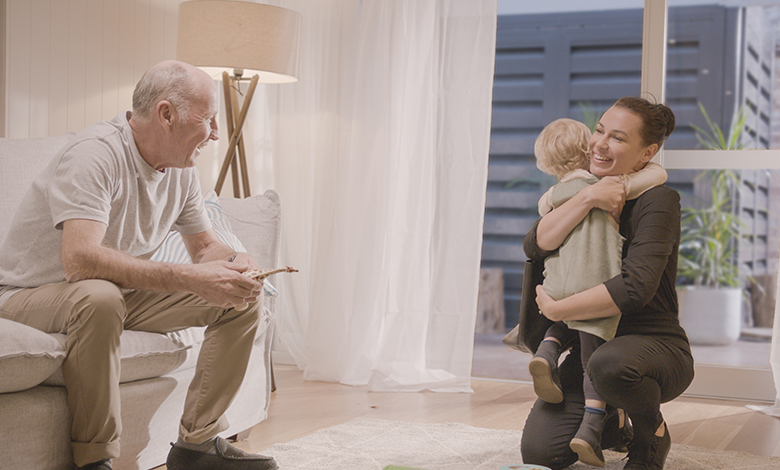Starting a routine before going back to work can make the changes easier for everyone. (Image: Getty)
“It was a bit of extra work for all of us, but it made the transition less stressful!”
“Oh Mamma, don’t stress about them getting the witching hour! They will manage and everyone will be fine,” reassured one responder, before adding: “A good routine will definitely help bub transition to the new situation feeling loved and secure. Dinner, bath, milk, story, cuddle and sleep is always a winner. Good luck!”
Another endorsed consistency, urging the family to “Keep the routine the same everyday. So, after 4pm you might do dinner, bath, story time and then bedtime – and the next day, your hubby or mum does the same. A consistent routine is the key!”
One poster had been through the same situation themselves and began consistently establishing a routine a few weeks before returning to work. “It was a bit of extra work for all of us, but it made the transition less stressful overall,” they assured. “Dinner, play, bath, milk, then book in bed worked for us.”
How do you establish a bedtime routine for a toddler?
A consistent evening routine is a fantastic way to help your little one feel safe, secure and comfortable. And while they might seem tricky to establish at the beginning, sticking with it is so worth it.
There are few things that can help set your toddler’s sleep routine:
Keep it consistent: It feels like a big challenge, trying to get a toddler to bed at the end of a long day. Consistency is key though, and because little kids generally respond well to routines, it won’t take long for them to recognise that the routine leads to bedtime. Most bedtime routines may look like this: dinner, bath, evening drink such as one of the products from Aptamil’s Toddler range*, a book, cuddle and tuck in.
Take it easy: You’re tired, they’re tired… The bedtime battle is not a relaxing time but if parents can try hard to relax into it and make it a chilled experience, it can be better all around. If we’re stressed, our kids feel it too and can feed off that. Appearing to be calm and relaxed about bedtime may help children relax into the routine too.
Lights out: Dimming the lights and using blackout blinds or night lights can help children settle for bedtime. Overhead lights, TVs and screens can be overstimulating so reduce these things as much as possible in the run up to bedtime.
Create a pattern: Decide on your schedule and follow it. For several days (a week if you can), try to remove all other distractions or events that will disrupt the sleep routine timings. It might feel hard at first, but short-term pain equals long term gain in this instance. Even if it feels like it’s an uphill battle, don’t give up. Stay consistent for a few days to give the bedtime patterns the chance to stick.
Hug it out: Sleep is crucial for healthy development, growth and wellbeing but sometimes toddlers need that extra long cuddle. You know your little one the best, so when you think they need to have a sleepy cuddle, don’t be afraid to hug it out and start afresh tomorrow.
*When intake of energy and nutrients may not be adequate.
Important notice: Any advice on #AskTheVillage is general only and should not be substituted for medical advice. Always seek and follow advice from a medical professional in relation to any health issues or concerns you may have.
Brought to you by Aptamil Toddler






